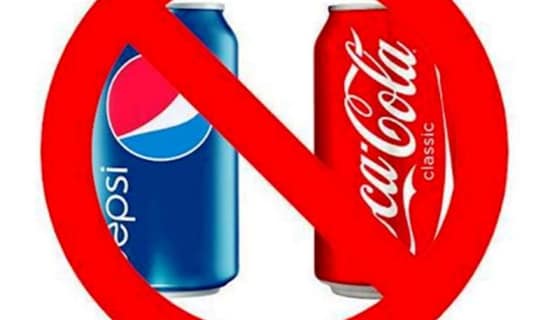The following are selections from the MEMRI Daily Brief series and the MEMRI Inquiry and Analysis series from 2020, by various MEMRI researchers and focused on a variety of topics.

By: Vincent R. Stewart
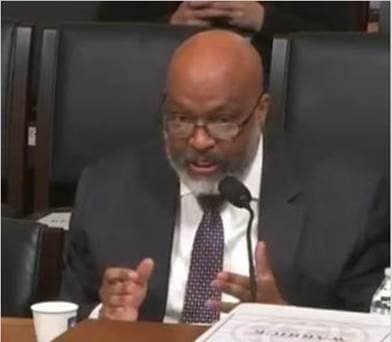
On January 15, 2020, Lt. Gen. (Ret.) Vincent R. Stewart, MEMRI Board of Advisors Chairman and Special Advisor, testified before the U.S. House Committee on Homeland Security on "U.S.-Iran Tensions: Implications For Homeland Security." He spoke about the threat of Iran cyberterrorism and potential cyber consequences.
By: Yigal Carmon

A few months ago, due to the repeated haplessness of President Trump in the face of major Iranian provocations, I wrote a scathing article titled "No Principles, No Dignity, No Power, No Deterrence", in which I argued that apparently the comprehension that principles, dignity and power translate into deterrence, and prevent escalation into a more costly war, was beyond Trump's understanding as a great hotelier.
The Quiet Crisis In U.S. International Broadcasting
By: Alberto M. Fernandez
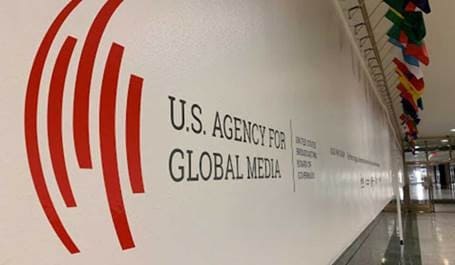
According to a copy of the Biden-Harris Transition Team workplan for USAGM (the U.S. Agency for Global Media, which oversees all U.S. government broadcasting to international audiences) that I have seen, this is the week that the incoming team is supposed to substantively engage with the incumbents. Among the items scheduled is supposed to be a "virtual meeting" between Transition Team Lead Richard Stengel and current USAGM CEO Michael Pack.
By: Y. Yehoshua

In January 2020, Al-Azhar – which is the leading religious institution in Egypt and in the Sunni Muslim world – held an International Conference on the Renewal of Islamic Thought, under the sponsorship of President 'Abd Al-Fattah Al-Sisi. The conference dealt, inter alia, with the renewal of religious discourse, an initiative that Al-Sisi's regime has been trying to promote for years as part of its efforts to combat terror and extremism in the country.
By: Steven Stalinsky

Since the coronavirus pandemic began, jihadis have been following it closely. Beginning with early chatter in late January 2020, this topic is a frequent focus of their online discourse. Additionally, it is impacting the global jihad, and, as U.S. and Western government officials are underlining, it could have security and other ramifications.
Al-Jazeera Unmasked: Political Islam As A Media Arm Of The Qatari State
By: Yotam Feldener, Alberto M. Fernandez

Launched in 1996, the Al-Jazeera network not only revolutionized pan-Arab broadcast media but also became a household name across the world in the aftermath of 9/11, when it aired exclusive interviews with Al-Qaeda leader Osama bin Laden. In the more than two decades that have passed, the Qatari TV channel has grown into a multi-channel, multi-language international operation.
By: A. Savyon

In recent months, the Iranian regime has suffered several grave geostrategic setbacks: the killing of IRGC Qods Force commander and the Iranian regime's No. 2 man Qassem Soleimani, who was in charge of actualizing the regime's goal of exporting Iran's Islamic Revolution; the weakening of Iran's grip in Iraq with the establishment of the government of the pro-U.S. Prime Minister Mustafa Al-Kadhimi; and the deepening of Iran's economic crisis due to tougher U.S. sanctions, the nosedive in oil prices, and the sharp devaluation of the country's currency, along with the widespread damage to Iran’s regime, economy, and society caused by the coronavirus pandemic. Despite these blows, the Iranian regime is demonstrating its activity and progress in three strategic areas: ballistic missiles, nuclear submarines, and intensification of its uranium enrichment, alongside its refusal to allow intrusive inspection of its facilities.
By: Anna Mahjar-Barducci

On October 10, 2020, prominent Russian academic Sergey Karaganov, also known as the "Russian Kissinger," was a guest of the program "Right To Know!" on Russia's state-run network TV Center (see Appendix). During the program, Karaganov mainly addressed Russia's role in world affairs, Russia's identity vis-à-vis the West, and Russia's need for a new national ideology that can challenge the liberal order.
By: Tufail Ahmad

This report reviews recent anti-France protests in Pakistani towns led by Islamic scholars, who have declared jihad against France. The clerics are demanding the beheading of French President Emmanuel Macron, the expulsion of France's French ambassador from Pakistan, and a boycott of French products.
By: S. Ali

Emerging as an independent leader from the Iraqi political scene, which is heavily dominated by an Iran-backed political elite, Mustafa Al-Kadhimi's appointment on May 6, 2020 as prime minister of Iraq has reignited optimism that he could bring a systematic change to restore Iraq's sovereignty and end more than a decade of Iranian hegemony over Iraq.
By: Amiel Ungar, Anatoly Strandberg

The tension between the United States (and to a lesser extent Western Europe) and China over responsibility for the coronavirus pandemic and the demand for indemnification for damages, has triggered reactions in Russia. Official Russia has backed China unequivocally. Russia has staked a great deal on relations with China. Both countries are members of the BRICS and the Shanghai Cooperation Council economically. Diplomatically, both countries share an interest in replacing a US dominated world order with a multilateral system presumably governed by the UN where both countries retain the veto power. Ideologically, both countries share authoritarian systems that deny the superiority of Western liberal values. During the coronavirus crisis, claims have been made that authoritarian systems enjoy superiority over liberal democracies and the latter will have to curb freedoms to survive.
By: JTTM Staff
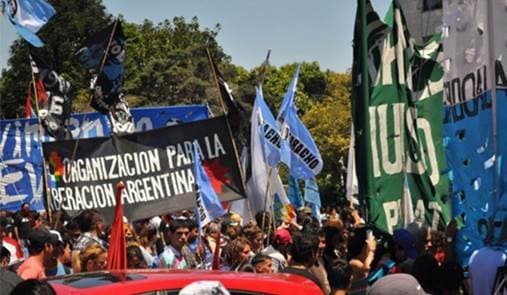
Ever since the founding of the Ayatollah regime in Iran, the country has invested significantly in the export of the principles of the revolution to the world at large, in establishing local support bases in other countries, and in undermining local governments abroad. One of its most prominent measures to achieve these aims is by means of proxies which receive financial, political, propaganda and organizational assistance in the guise of armed militias which gradually infiltrate local politics, such as Hizbullah in Lebanon, the Houthis in Yemen, the Shi'ite militias in Iraq, and the Shi'ite clerics in Nigeria. In addition, the Iranian regime and its protégé, Hizbullah, operate various types of media, including social media accounts which address local audiences in their own languages. Thus, in an attempt to reach a Spanish-speaking audience, Ali Khamenei, Supreme Leader of Iran, has both a website and a Twitter account in Spanish.[1] Furthermore, in 2001 the Islamic Republic of Iran Broadcasting set up a Spanish-language television channel called HispanTV.
By: JTTM Staff

In 2013, MEMRI reported on the activity at the Al-Risalah Islamic bookstore in Sydney, Australia, which also served as a community center for local Muslims. The report showed that the bookstore, located in the Bankstown area of West Sydney, was a hub from which radical Islamists spread extremist and militant Islamic views. The center was owned by Australian preacher and community leader Wissam Haddad, and many of the individuals who operated and preached there later joined Al-Qaeda (AQ) or the Islamic State (ISIS), or were involved terror activity inside Australia. Haddad closed the Al-Risalah center in September 2014 after media reports about the activity there aroused public outrage.
By: Z. Harel
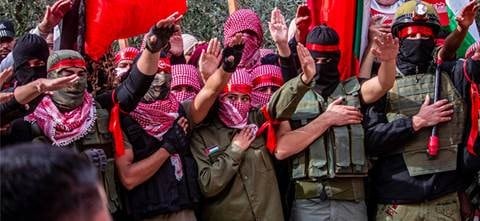
Students at Birzeit University near Ramallah in the Palestinian Authority (PA), have been on strike for a month following a crisis with the university administration. Among the causes of the crisis was a decision by the university to ban military-style activities and displays on campus. The decision was issued ahead of the anniversaries of the founding of several Palestinian movements: the Popular Front for the Liberation of Palestinian (PFLP) on December 11, the Hamas movement on December 14, and Fatah on January 1. In the past, student organizations have marked these anniversaries with rallies which included marches by masked and uniformed activists, and at which military messages were conveyed and support for armed struggle against Israel was expressed. A notice issued by the university stated that such events "violated [its] by-laws and rules" and that their organizers would be punished.
By: H. Varulkar, Z. Harel
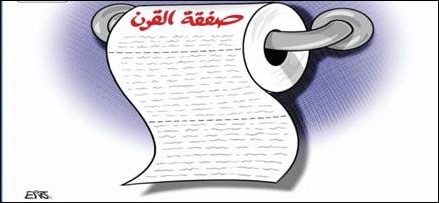
In its official responses to the Trump administration's peace plan, which was announced on January 28, 2020 and has been dubbed "the Deal of the Century," Qatar welcomed the U.S. efforts to achieve peace and expressed willingness to assist in these efforts, but at the same time voiced reservations and implied criticism of the plan. A statement issued by Qatar's Foreign Ministry following the plan's announcement said that "Qatar welcomes the efforts to achieve a just and lasting peace in the occupied Palestinian territories, and appreciates the efforts of the current U.S. administration to find solutions for the Palestinian issue and the Arab-Israeli conflict."
By: B. Shanee

The January 23, 2020 visit to the Nazi Auschwitz concentration and extermination camp in Oświęcim, Poland by a delegation from the Mecca-based Muslim World League (MWL), comprising 25 senior Muslim clerics and headed by its secretary-general, Mohammad Al-'Issa, was unprecedented. Taking place in advance of International Holocaust Remembrance Day on January 27, it was the first visit by a senior Muslim delegation to the camp, and was in conjunction with delegations and representatives from the American Jewish Committee (AJC). The visit, along with Al-'Issa's statements condemning the Holocaust during the visit, prompted a range of reactions in the Arab and Islamic world.
Syrian Opposition: Anti-Regime Protests In Al-Suwayda Give Us Hope Of Toppling The Regime
By: O. Peri

The escalating economic crisis in Syria – especially in light of the coming into force of the U.S. Caesar Act, which is expected to yield further sanctions on the Syrian regime, and the Syrian government's mishandling of the economy – has led to considerable tension in the country, in particular in the southern governorate of Al-Suwayda, which has a Druze majority.
By: B. Chernitsky

In recent years, the Moroccan King and senior Moroccan officials have taken a clear stance against antisemitism and stressed the need to teach the values of tolerance and coexistence as lessons of the Holocaust. Pro-Palestinian organizations in the country have condemned this discussion of the Holocaust as an expression of normalization with Israel.
What Next For Turkey And Russia In Nagorno-Karabakh?
By: Dr. Dimitar Bechev

On November 17, 2020, Turkey's Grand National Assembly authorized the deployment of a military contingent in Azerbaijan. It is hard to overstate the symbolism of the decision. It resonates strongly with the sentiments of many in the country for whom the adage iki devlet, tek millet ("two states, one nation") is an article of faith.
Symbols, Terms Used In Online White Supremacist Discourse
By: Michael Davis

The discourse of white supremacist and Neo-Nazi online communities is elaborate and constantly changing, and serves as common ground and an "identifying badge" for the numerous individuals and groups that comprise these communities. This report, published as part of MEMRI's Domestic Terrorism Threat Monitor (DTTM) project, presents terms, phrases and symbols that are typical of this discourse, including acronyms, abbreviations, online slang, and derogatory terms for targeted groups such as Jews, Blacks, Muslims and others. It covers both elements that are common to all these actors and elements typical of specific groups.
By: A. Agron

Over the past several years, the Boogaloo movement, defined as anti-government movement advocating for a violent uprising targeting liberal political opponents and law enforcement, has created and circulated graphics on social media, with one major focus being weapons. Often, these graphics poke fun at the U.S. Bureau of Alcohol, Tobacco, and Firearms (ATF). Movement members, who refer to themselves as "boogaloo bois," use the slang term "alphabet boys" for federal government law enforcement such as the ATF and the FBI.
By: Romany Shaker, Yigal Carmon

Libya's political situation is characterized these days by a civil war between a mostly Islamist side based in Tripoli, in west Libya, and a mostly non-Islamist side based in Tobruk, in east Libya, with both sides being aided by foreign governments with conflicting interests. The confusion is further exacerbated by the fact that according to the 2015 UN-sponsored agreement between the rival parties, the so called "UN-recognized" or even "internationally recognized" West Libya side is not the legitimate one, and is actually a usurper.
By: M. Manzour, A. Savyon

As it does every year, the Iranian regime is marking Qods Day – Jerusalem Day – on the last Friday of Ramadan, which in 2020 falls on May 22. This year as well, the call for destroying Israel features prominently in statements by regime officials, who announced that the due to the coronavirus Qods Day marches would be presented via the media and there would be no parades in the streets. Also clearly evident again are expressions of antisemitism in statements by regime officials and spokesmen. This report will present several examples of regime calls for the destruction of Israel as the Jewish state that include antisemitism.
By: Anatoly Strandberg, Amiel Ungar

The tension between the United States (and to a lesser extent Western Europe) and China over responsibility for the coronavirus pandemic and the demand for indemnification for damages, has triggered reactions in Russia. Official Russia has backed China unequivocally. Russia has staked a great deal on relations with China. Both countries are members of the BRICS and the Shanghai Cooperation Council economically. Diplomatically, both countries share an interest in replacing a US dominated world order with a multilateral system presumably governed by the UN where both countries retain the veto power. Ideologically, both countries share authoritarian systems that deny the superiority of Western liberal values. During the coronavirus crisis, claims have been made that authoritarian systems enjoy superiority over liberal democracies and the latter will have to curb freedoms to survive.
By: M. Abraham, A. Savyon, E. Kharrazi, M. Manzour

In response to February 15, 2019 statements by U.S. Vice President Mike Pence at the Munich Security Conference, in which he accused Iran of Nazi-like antisemitism, Iranian Foreign Minister Mohammad Javad Zarif explained the next day, in an interview with the German daily Der Spiegel, that Iran was not antisemitic, and that "Iran has always supported the Jews, we are only against Zionists. The Holocaust was a disaster."
A Thousand Times: No, No, No: Why the PLO Cannot Sign Any Peace Treaty With Israel
By: Ze'ev B. Begin
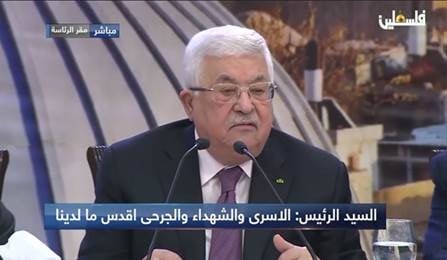
"We say a thousand times: 'No, no, no, to the Deal of the Century'... Our people will send [it] to the garbage bin of history, where all the conspiratorial plans to eliminate our cause have gone." This was the statement that PLO Chairman Mahmoud 'Abbas delivered at a press conference in Ramallah on January 28, immediately following President Donald Trump's presentation of the American "Peace to Prosperity" plan.
The Jews Of The Gulf – Past And Present
By: Dr. Nimrod Raphaeli

As Israel and some of the Gulf countries enter a new era of diplomatic and business relations, it should be realized that Jews have had a long history in that part of the Arab world. Jews were present in the Arabian Peninsula long before the birth of Islam. Their presence came to an end under the second Islamic Calif Omar (634-644), who expelled them, in keeping with a hadith from Muwatta Malik, who taught at the mosque of the Prophet Muhammad.
By: N. Szerman, P. Lurcat

The following report reviews the sales of antisemitic books in French on Amazon.fr, with a focus on French antisemitic writer Hervé Ryssen. Amazon's platform is available to antisemitic authors writing in many languages, including French. In France, Amazon.fr contravenes the French hate speech laws which aim at protecting individuals and groups from defamation on the grounds of identity.
The China-Australia Crisis From China's Perspective
By: Heathe Sloane

On November 18, 2020, the Chinese Embassy in Australia leaked an extraordinarily blunt dossier enumerating 14 grievances that purportedly implicate Australia in "poisoning the atmosphere of bilateral relations." In addition to protestations against Australia's decision to block specific Chinese investment projects and to ban Chinese telecoms from building Australia's 5G network, the dossier scorned Australia's current stance on issues relating to Xinjiang, Hong Kong, Taiwan, and the South China Sea, deriding it as "incessant wanton interference." Shortly after the list became public, Australian Prime Minister Scott Morrison responded by reaffirming that "Australia can never compromise on our national interests."
By: Sasha Gong, Anna Mahjar-Barducci

In September 2020, veteran Chinese diplomat Yuan Nansheng (袁南生) published an essay, which prompted a wave of reactions, titled "My Thoughts On Sino-U.S. Relations After The Coronavirus Pandemic," analyzing past, present, and future Sino-U.S. relations.



